-
Chapter 2 Contents
Chapters
1
Welcome and introduction
An introduction to the Health CIO Handbook, its aims, objectives and intended audience.
4
Transition guide to becoming a Health CIO
A transition guide to becoming a Health CIO, what should you expect, what mistakes should you try to avoid.
6
Partnering with CCIOs and other clinicians
How can CIOs most effectively partner with clinicians?
8
Future challenges
An examination of some of the ‘near future’ disruptive challenges that Health CIOs should think about preparing for; big data, genomics and the digital patient.
9
Breaking through the silicon ceiling
As a successful Health CIO, you have a lot of skills. How do you use them to secure the next step in your career? And what, exactly, do Health CIOs bring to the executive table?
Informatics professionalism
By Gwyn Thomas

Professionalism is like a rainbow: wondrous to behold but complicated to explain; easy to spot but difficult to pin down.
At work, one of the highest accolades that you can be given is to be called a “true professional”. It’s a simple phrase that sums up the blending and integration of a variety of skills.
Professionalism tends to be thought of as conducting yourself within a code of ethics, with integrity, accountability, and excellence.
It means communicating effectively and appropriately and always finding a way to be productive. High quality work standards, honesty, and respect for others are also part of the package as are teamwork and collaboration.
“Professionalism is doing the right thing when no-one else is looking.”
Why is professionalism important?
Professionalism is the cornerstone for building a reputation that commands the respect of society; to be considered the equal of other professionals such as lawyers, doctors, nurses, engineers, architects and accountants.
Being seen by others as a professional is the foundation for gaining recognition for your abilities and achievements. Being a professional is important because it is a way to invest in yourself.
What is a professional?
A professional is someone who cares enough about what they do to take personal responsibility for self-improvement. They are prepared to broaden their capabilities and face up to the personal accountability required to work in the service of others.
A professional never stops learning, not just for the sake of learning, but to be better at what they do. A professional believes that lifelong learning enhances their self-image and that, by applying their skills in accordance with a code of practice, they will earn the respect of others.
A professional is an individual who:
- Takes responsibility for their own actions
- Is prepared to justify their decisions and actions
- Keeps up to date with their field of knowledge
- Abides by ethical principles and standards of behaviour
- Contributes to leadership in their profession.
“Your reputation as a professional is determined by the lowest
standard that you tolerate not the highest that you have achieved.”
How do you achieve professionalism? A few ‘golden rules’
Learning – “What you know”
- Practise critical thinking; contribute to the knowledge base
- Show appreciation for scholarship and research; understand the theoretical foundation of ideas and actions
- Read current journals; keep abreast of technical advances
- Participate in conferences; learn ‘on-the-job.’
Action – “What you do”
- Actively support a professional body; live up to its values
- Share your knowledge and experience freely; take advantage of the knowledge and experience of others
- Evaluate your professional practice; confront your own shortcomings and those of your fellow professionals
- Speak up for your profession; don’t talk it down.
Behaviour – “How you do it”
- Strive towards self improvement; commit to personal development
- Reflect on your successes and on your failures; seek out the perspectives of others
- If you say you are going to do something, then do it; but when necessary say “no” without fear or guilt
- Turn up on time; be aware of the impact of your behaviour on others.
Why have professional bodies been created?
Professional bodies have been set up to further the interests of their individual members by providing independent collective leadership to enhance the profession’s reputation and influence.
Professional bodies also have an important role in safeguarding the public interest through defining, maintaining and enforcing high standards of training and ethics.
Many professional bodies also act as learned societies for the academic disciplines underlying their professions. They are involved in the development and monitoring of educational programmes, and the updating of skills. This may include certification to indicate that a person possesses relevant qualifications in the subject area.
What is the value of registration with a professional informatics body?
Public registers have been set up for the common good; to protect the public through the application of professional standards and the regulation of individuals who fall below them. They are an essential component in building and maintaining public trust and professional reputation.
Professional registration promotes high standards of behaviour and ethics. Registration with a professional body is, in some cases, a legal requirement and the primary basis for gaining entry and setting up practice.
Registers are risk based, which is why some are a mandatory legal requirement or part of a licence to practise, while others are voluntary. They are open to all so anyone (public or employers) can look up the details of a registered practitioner when they are making decisions about:
- Employment
- Use of services
- Raising concerns
- Making a complaint.
Taking personal action to join a publicly open register is a demonstration that you are prepared to face up to a moral obligation to apply your knowledge and skills in ways that benefit society as a whole or, at the very least, “do no harm.”
What is the value of professional informatics registration for the public and patients?
The public and patients can be assured that:
- Their personal information will be held securely and safely by qualified professionals with due regard to their rights to access, protect and share their own information
- Clinical staff are supported by certificated informatics professionals in their use of knowledge, information and digital technology
- Digital information systems in health and social care are designed, implemented and managed by competent professionals who have signed up to a code of conduct and are maintaining their competence in their areas of expertise
- They can look up the public register of informatics professionals to see whether the people responsible for handling their information have up to date qualifications and experience
- Any complaints they have about the failure to adhere to professional standards in the handling of their information will be investigated independently and appropriate action taken.
What are the benefits of membership of a professional informatics body?
Individual members will be able to:
- Demonstrate that they are qualified and accountable
- Be supported in mapping out a clear path to career advancement
- Speak with an independent collective voice to influence policy and practice and gain recognition for their professional contribution
- Increase any employer’s confidence that they have the skills required for the role for which they are applying or in which they are currently being employed
- Assure employers that they are committed to conducting themselves in a safe and professional manner
- Access a network of peers to share learning, ideas and good practice
- Come together to bring about change and “give something back”
- Connect with users and subject matter experts to build understanding of requirements and avoid repeating the mistakes of others.
There are other wider, public interest benefits too:
- When making job appointments or dealing with complaints, employers will be able to find out:
- the qualifications and experience of an individual practitioner through the public register, their date of registration and its expiry
- the qualifications / criteria that are necessary for an individual to be on the register and remain on it, and how they are assessed.
- There will be a clear code of conduct to which individual professionals will be accountable for compliance.
- There will be a clear complaints process, simple and easy to use for both organisations and individuals.
- Information on whether an individual has had a finding against them, and what sanctions were taken will be publically available.
- There will be an independent, confidential, whistleblowing mechanism for:
- staff to raise issues of professional misconduct of their organisation or working colleagues
- investigations into breaches of professional codes of practice or failure to adhere to professional standards of professional.
- There will be clear definition of the implications of misconduct, breaches or failure.
- Annual registration includes the requirement for continuing professional development which will allow public demonstration that skills and knowledge are being kept up to date.
So, what’s the minimum commitment required from every chief information officer?
If they really want to be considered a professional, never mind an information leader, then every CIO should:
- Join a licensed professional body to appear on the register of the Federation of Informatics Professionals (Fed-IP); and live up to the values and code of practice
- Take an active role in national and local professional groups and networks; offer their knowledge freely and openly for the benefit of others
- Adopt the “golden rules”; and use them to promote the culture of informatics professionalism with peers and colleagues
- Speak up for the informatics profession; be an advocate through what you do as well as what you say
- Share your successes and your failures; help the profession speak with a credible voice capable of using our collective experience to shape policy and practice
- Make sure that everyone in your team understands the importance of meeting professional standards in everything they do; make sure that they have an up-to-date set of organisational objectives, a personal development plan and support for developing their career.
Further reading:
To find out more about professionalism and why you should take it seriously, have a look at the following:
- Federation of Informatics Professionals
www.fed-ip.org
- “Professionalism in healthcare professionals”
– report by the Health & Care Professions Council published May 2014
www.hcpc-uk.org.uk
- The Professional Standards Authority
www.professionalstandards.org.uk
- “Dilemmas and Lapses”
- Report by the National Clinical Assessment Service 2009
www.ncas.nhs.uk/events/conferences/previous-conferences/professionalism-dilemmas-and-lapses/
- The Engineering Council
– Benefits of Professional Registration
www.engc.org.uk/benefits.aspx

Dr Gwyn Thomas
Dr Gwyn Thomas is chairman of UK Council for Health Informatics Professions, which runs the national professional register for NHS Informatics staff. He is also secretary of the BCS Health Executive.
His main pre-occupation is to try and raise the profile and professional standing of Informatics professionals by promoting collaboration between all of the national professional informatics bodies, through the newly created Federation for Informatics Professionals, of which he is also the chair.
Gwyn is Hon Professor of Informatics in the Medical School Swansea University, designing and delivering the leadership programme of the University’s Masters Degree in Health Informatics. He has been the CIO for Welsh Government, responsible for the all-Wales Public Services Digital Strategy and has previously held national leadership positions in the NHS in England and Wales.
He also has directorships in a few SMEs providing innovative products, information services and consultancy to the public sector.




